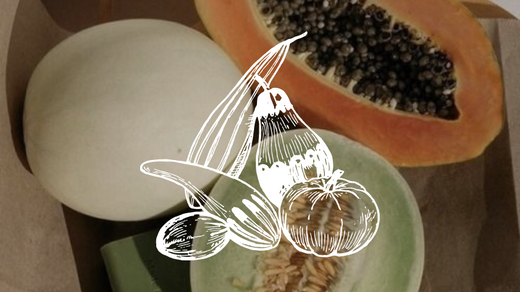Waarschijnlijk heb je wel over antioxidanten gehoord dat deze heel gezond zijn en we die genoeg binnen moeten krijgen als tegenhanger van vrije radicalen, die juist schadelijk zijn. Antioxidanten zijn moleculen die beschermen tegen oxidatie. Oxidatie kan cellen beschadigen, zie het maar als een soort roest. Door roest wordt iets zwak en gaat op den duur kapot, dit wil je natuurlijk niet voor je lichaamscellen. Overmatige oxidatie wordt meestal veroorzaakt door een te veel aan vrije radicalen.
Antioxidanten worden verdedigingsstoffen genoemd en worden opgenomen door het lichaam via de voeding. Doordat het voedingspatroon tegenwoordig in toenemende mate ongezonder wordt, krijgen we ook steeds minder antioxidanten binnen om ons te verdedigen, waardoor we vatbaarder worden voor ziekten.
Naast het beschermen tegen vrije radicalen, doen antioxidanten (in de juiste hoeveelheid) het volgende:
- boosten van het immuunsysteem
- zorgen voor meer focus
- houden je hart en bloedvaten in goede conditie
- verbeteren de kwaliteit van sperma
- werken stress verlagend
- verminderen hevige hoofdpijnen en migraine
- houden de hersencellen in goede en gezonde conditie
- gaan het verouderingsproces tegen
Met vrije radicalen komen we dag in dag uit in aanraking. Bijvoorbeeld door bepaalde voeding, medicijnen, alcohol, ontstekingen en de lucht die we inademen. Maar ook door shampoo, cosmetica, straling, kraanwater, oplosmiddelen, reizen met het vliegtuig, smog en luchtvervuiling. Deze lijst is nog vele malen langer, want vrije radicalen zijn overal.
Hoewel vrije radicalen veel problemen veroorzaken, heb je ze ook nodig in je lichaam. Ze helpen je immuunsysteem om zich te weren tegen giftige indringers, virussen en ziekte. In sommige gevallen zijn ze bovendien het gevolg van normale lichaamseigen processen. Denk bijvoorbeeld aan het verteren van voedsel na het eten van een maaltijd. Dit zorgt voor een hogere verbranding op celniveau en hierdoor ook voor een verhoogde vrije radicaalvorm. Te vaak eten kan ook voor een grotere hoeveelheid vrije radicalen zorgen.
De grootste veroorzaker van vrije radicalen is chronisch stress! Bij stress kiest het lichaam voor de snelste manier om energie aan te maken en hierbij komen indirect veel vrije radicalen om de hoek kijken. Nu heb je dus juist antioxidanten nodig.
Gelukkig maakt je lichaam zelf antioxidanten aan bij voldoende inname van mineralen en sporenelementen zoals mangaan, ijzer, selenium, koper en zink. Daarnaast kunnen we nog vele antioxidanten uit onze voeding halen. Denk bijvoorbeeld aan: bosvruchten, koolsoorten (met name broccoli), bladgroenten, knoflook, matcha thee, olijfolie, verse kruiden als gember, kurkuma, koriander, komijn, oregano, noten, biologisch fruit (met schil als je die kunt eten) en pure chocolade.
Natuurlijk is deze lijst nog vele malen langer. Let vooral op de kleur van groenten, want hoe dieper deze is, hoe meer antioxidanten erin aanwezig zijn. Ook is het belangrijk dat de planten biologisch zijn want als de plant zichzelf heeft moeten beschermen tegen insecten en schimmels, bevat deze meer antioxidanten.
Regelmatige variatie en het eten van voeding met een grote diversiteit aan kleuren, is het geheim om antioxidanten en andere gezonde voedingsstoffen binnen te krijgen.
Ook met supplementen kun je werken aan het boosten van antioxidanten.
Een goed vitamine C-supplement is bijvoorbeeld een sterke antioxidant. Wanneer je bijvoorbeeld vitamine C aan je smoothie toevoegt, houd je de smoothie langer houdbaar doordat de voedingsstoffen minder snel oxideren.
Voor welke van de voedingsstoffen je kiest, is afhankelijk van eventuele klachten en of medicatie. Om hier gelijk goed en veilig te zitten, kun je een gratis supplementenadvies aanvragen. Vergeet dan niet te melden dat je graag een passend antioxidant als supplement wil gaan gebruiken.
*Claims in afwachting van Europese goedlating








